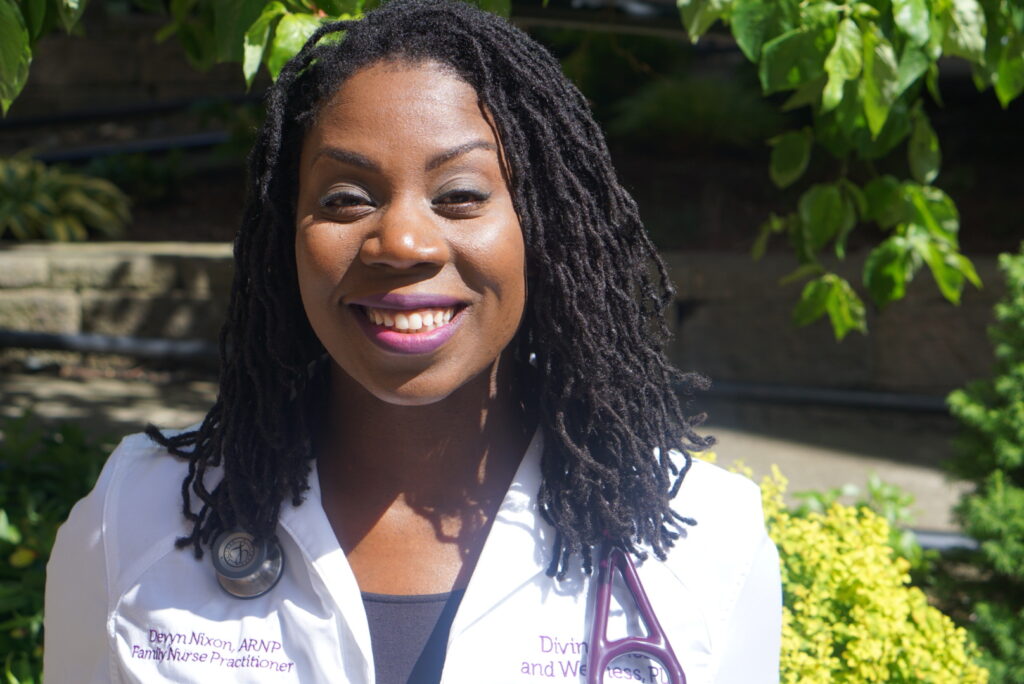The most common question I am asked as a nursing instructor and diversity, equity, and inclusion practitioner is how to translate knowledge into action for individuals and organizations.
There is a plethora of content surrounding diversity, equity, and inclusion as it relates to nursing as a profession, but few offerings leave nursing professionals with something tangible they can do on an interpersonal level. Organizations may serve an ethnic meal in the cafeteria during a cultural observation month or offer continuing education centered in one of our many identities. However, there may be a simple reason why these gestures don’t translate into employee retention and patient satisfaction: they don’t make individuals feel welcome.
I’ve lived in my city for over 16 years and there are constant reminders that I don’t belong. I can’t purchase my color of makeup foundation. There isn’t a local church reminiscent of the one I grew up in. It might not sounds like much but I cant get a smoked turkey wing for my holiday greens. As a Black nurse practitioner, people often ask where I’m from, because it couldn’t possibly be the Pacific Northwest. While these inconveniences may not be what comes to mind when we hear the term “microaggression,” they certainly feel that way.
So how does someone like me, who is often one of few (if not the only) Black Americans in any the group, thrive in glaring underrepresentation? It’s simple: I feel welcome.
“Belonging” has been at the center of diversity and health equity conversations lately and to be honest, it feels a bit unfair. We can’t control the feelings of others. We cant make people feel like they belong. But we can practice welcoming others, which is arguably better.
A simple salutation to acknowledge one’s presence goes a long way. An inquiry about the weekend, family, or hobbies shows interest beyond productivity. You don’t have to worship with me to walk with me. Finding your people isn’t exclusive to finding your reflection.
Belonging is when the majority speaks your language. Welcoming is when interpretation services are available when you need them.
Belonging is an inherent understanding of cultural norms. Welcoming is a grace when those norms are violated.
Belonging is seeing yourself and your norms reflected. Welcoming is being able to exist in a space without code-switching, even if you’re one of few.
So how do we welcome those who don’t have the privilege of belonging?
Think B.L.A.C.K
B – Biases. We all have them. Continue to unpack your programming until it no longer feels like work. Keep learning ways to recognize and check your bias.
L – Listen. When people share their experiences, believe them. Playing “devil’s advocate” is harmful and erodes trust.
A – Ask, don’t assume. Thing “cultural humility” instead of “cultural competency.” Cultural humility enters any relationship by questions with the intent to honor a person’s beliefs, customs, and values, instead of assuming.
C – Communicate clearly. Jargon and slang are confusing and distance those who can’t decode them in real-time. Literal communication is far more inclusive.
K – Keep calm. People are so afraid of “messing up” that they freeze or say nothing at all. There is grace for errors when intentions are pure, so just breathe and keep going. Tension is more likely to be perceived as contempt.
the next time you’re trying to recall all of your diversity, equity, inclusion, and belonging training, just breathe and think B.L.A.C.K.
You’re welcome.
This blog is a part of the “Dialogues in Health Equity” series by the Health Equity Faculty Interest Group. They are committed to decreasing health disparities experienced by local and global communities by promoting social justice and health equity through nursing practice, research, education, and service.
About the Author: Devyn Nixon
Devyn Nixon, APRN, is a family and cardiovascular nurse practitioner, nursing instructor and a student in the Johns Hopkins DNP/MPH program, Class of ’26. She lives in Washington state where she practices in inpatient and outpatient cardiology and teaches the RN-BSN program at Western Washington University. Devyn is passionate about representation, education, and policy as means to achieve health equity.


 Birth Companions Talk Doulas and Maternal Health with Mayor Brandon Scott
Birth Companions Talk Doulas and Maternal Health with Mayor Brandon Scott Earth Day: An Opportunity to Address the Environmental Injustice of Plastic Pollution
Earth Day: An Opportunity to Address the Environmental Injustice of Plastic Pollution Forging Policy: How Can Doulas Improve Black Maternal Health?
Forging Policy: How Can Doulas Improve Black Maternal Health? No. 1 Rankings for the School of Nursing and a Pipeline to the “Best Jobs”
No. 1 Rankings for the School of Nursing and a Pipeline to the “Best Jobs” Global Service Learning: Guatemala
Global Service Learning: Guatemala



